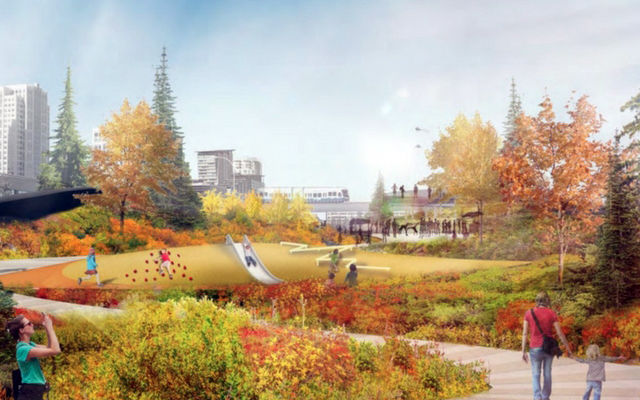Published June 21 2017

On Monday, the City Council was briefed on the newly unveiled “Bellevue Smart: Planning for a Smarter City” plan. The smart city strategy describes a cross-disciplinary effort to integrate technology, data analytics and innovation into delivery of city services. In 2016, councilmembers included the initiative in the 2016-17 City Council Vision Priorities.
Due to the complexity of integrating systems and adopting emerging technologies, becoming a smarter city is a multi-year process. As laid out in the plan, the city has adopted a three-phased approach. Phase 1, where the city currently is, focuses on investing in foundational systems.
Other highlights included a list of accomplishments since the last council briefing in September of 2016:
- Hiring a transportation technology partnership manager focusing on public-private partnerships;
- Releasing a request for proposal that supports advanced metering infrastructure to improve services for water customers;
- Expanding public Wi-Fi at Spiritwood Manor to bridge the digital equity issue for students;
- Continuing work on grants received from the National Institute of Standards and Technology for a smart city dashboard and U.S. Department of Energy to analyze greenhouse gas emissions trends.
Councilmembers voiced their continued enthusiasm for the Smart City initiative and stated that they are looking forward to future updates.
Grand Connection Framework Plan
The council was also given the latest news on the city’s ambitious Grand Connection project. The draft Grand Connection Framework Plan, available on the Grand Connection public involvement page, presents a summary of the visioning completed for sequence one. Sequence one focuses on the segment of the route from Meydenbauer Bay to City Hall. The plan includes design recommendations, programming considerations and other improvements. Following review and comment by councilmembers and the public, the framework plan will be revised and put forth for adoption later this fall.
Of note are the next iterations for the Interstate 405 crossing, sequence two of the visioning process. The three alternatives will be included as part of the Wilburton Commercial Area Draft Environment Impact Statement. It’s anticipated to be released as a second volume to the framework plan later this year. Bellevue will host an online and in-person open house in the near future to get input from the community.
Solution found for amplified noise at swim meets
As part of the city manager’s report, councilmembers were briefed on a solution to an issue regarding noise complaints at the Phantom Lake Bath and Tennis Club. Residents raised concerns during last week’s council meeting after the pool was contacted by code compliance staff investigating a complaint about how the amplification system was being used for local meets.
In an effort to reduce future complaints, staff applied a code exemption for sound amplification at pools and identified steps for communicating this information to interested parties. Neighbors have been made aware of the meet times and the predictability of the events, while pool operators were given tips to minimize any disruption. A compliance officer has been assigned to the issue and Bellevue Police are now aware of the exemption.
The council noted the quick remedy and thanked staff for their efforts.
New board and commission appointments
Finally, in two separate motions, councilmembers unanimously approved appointments to the city’s Library Board and Transportation Commission.
- Library Board
- Position 1 – Kim Anderson
- Position 2 – Ron Higgs
- Position 6 – Gunjan Murarka
- Transportation Commission
- Position 3 – Loreana Marciante
- Position 6 – Khek The
The council appoints residents to boards, commissions and committees to provide detailed study and recommendations on important policy matters facing the city. The Library Board is comprised of seven residents who advise the King County Library System. The seven-member Transportation Commission reviews topics from infrastructure planning to traffic codes. Appointees on both bodies serve four-year terms.
